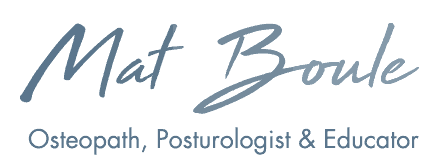Of Stress and Muscles
Is it because we are stressed that our muscles stiffen up or is it that our muscles stiffen up, for whatever reason, and then, we feel stress? Read more
Is it because we are stressed that our muscles stiffen up or is it that our muscles stiffen up, for whatever reason, and then, we feel stress? Read more
Think quickly! What could be an outstanding way to diminish negative emotions such as anxiety and sadness as well as daily stresses? Read more
Could it be that if you weren’t so keen on cartwheels as a kid, you could have a propensity to be feeling stressed out as an adult? It could be difficult to stipulate this for sure but there are some interesting links between our balance (vestibular) system and the stress response.
To start off, there is evidence from animal studies indicates that vestibular symptoms are effective in activating the stress response, and that the acute stress response is important in promoting changes in how both the vestibular system and the cerebellum function as a unit.
In the context of vestibular lesions, for example, evidence from animal studies has demonstrated neural pathways linking the vestibular nuclei with the limbic system including the hypothalamus and that stress responses evoked by vestibular symptoms promote synaptic and neuronal plasticity in the vestibular system.
Dagilas et al. (2005) investigated the stress response evoked by vestibular stimulation in healthy volunteers by measuring serum cortisol levels at the point of maximal nystagmus while undergoing caloric stimulation (vestibular stimulation). Cortisol levels were actually found to be significantly elevated above resting levels.
In a preceding detailed study, Kohl demonstrated that cross-angular rotatory vestibular stimulation potently stimulated ACTH, noradrenaline, and adrenaline secretion, in a pattern consistent with a vestibular-evoked stress response.
Human imaging and behavioral studies suggest the hippocampus may be an important center for vestibular compensation. Increased physical activity has been shown in animals to affect brain morphology by promoting neurogenesis of the hippocampus and vestibular exercises and the promotion of physical activity in general may have similar effects in humans.
There are a few neuroanatomical reasons why these realities can be observed. In particular, the nucleus tractus solitarii have extensive relationships with the vestibular nuclei both via direct projections and indirectly through the parabrachial nucleus, which provides a major input into the limbic system.
Balance is an interesting concept to begin with and it only gets better when you read the word and see all of its meanings. It can be even more exciting to actually have a profound effect on how an individual gains balance in order to improve their quality of life. That’s what the combination of Posturology and Functional Neurology is all about!
https://www.ncbi.nlm.nih.gov/pmc/articles/PMC3406321/
Mat Boulé, Osteopath, Posturologist, Educator
(514) 880-5424
Le Hub 288 (Mon Tues):
288 Bd Curé-Labelle, Laval, QC H7P 0B2
Adrenaline Performance (Wed Fri):
8158 Chemin Devonshire, Mont-Royal, QC H4P 2K3
Athletik One (Thu):
2068 Trans Canada Route, Dorval, Quebec H9P 2N4
Centre Umanité (Sat):
500 Boul des Seigneurs #201, Terrebonne, QC J6W 1T3
